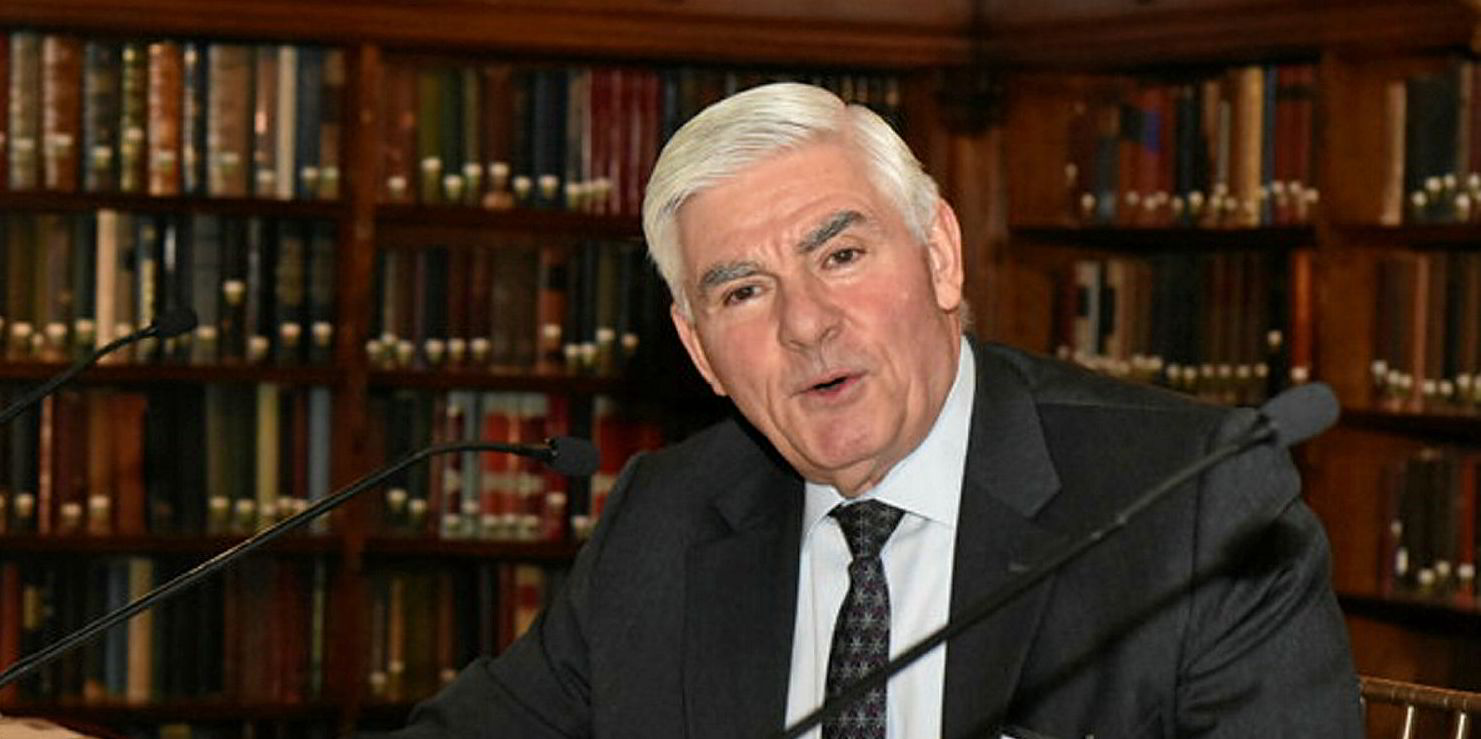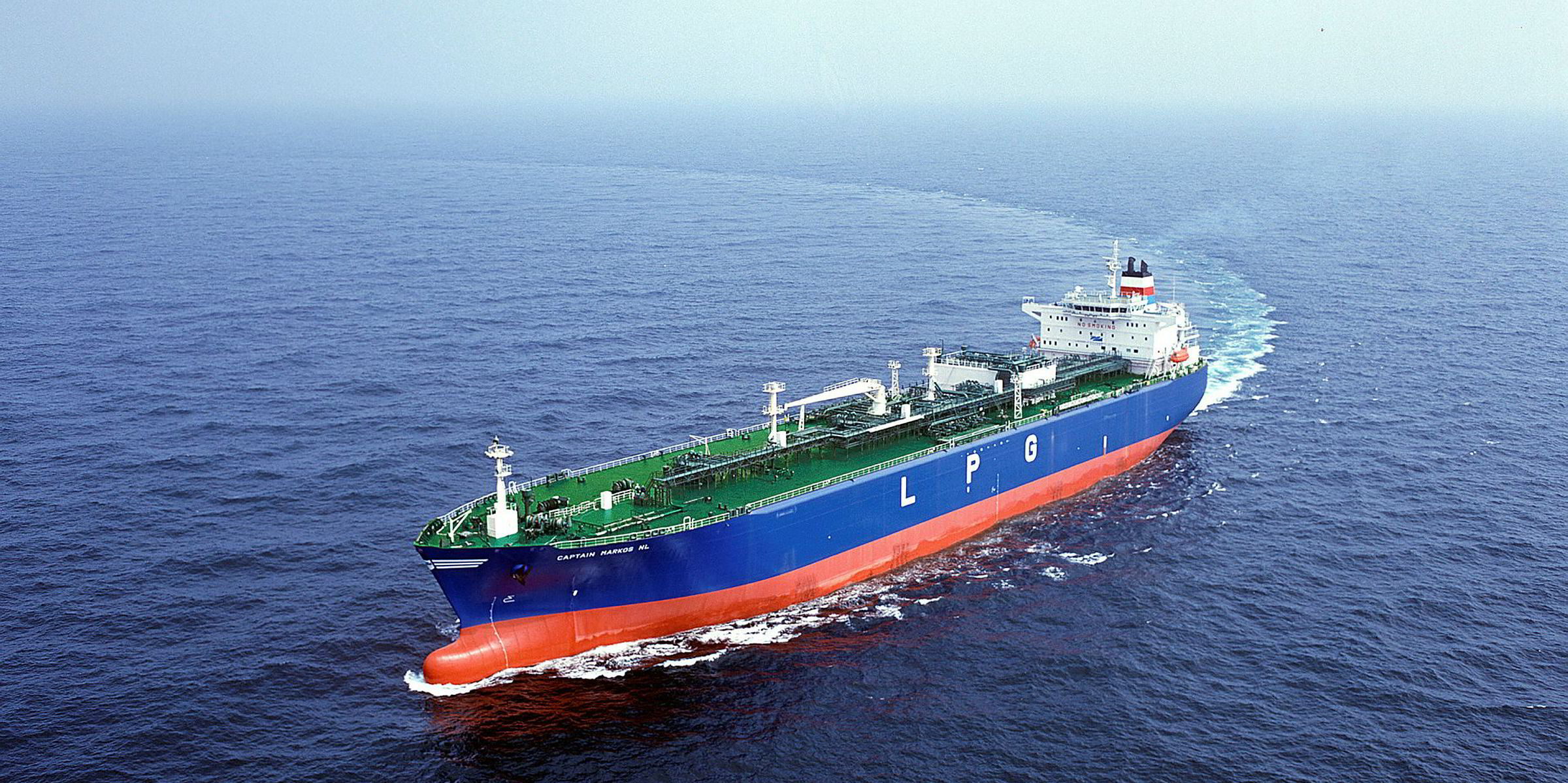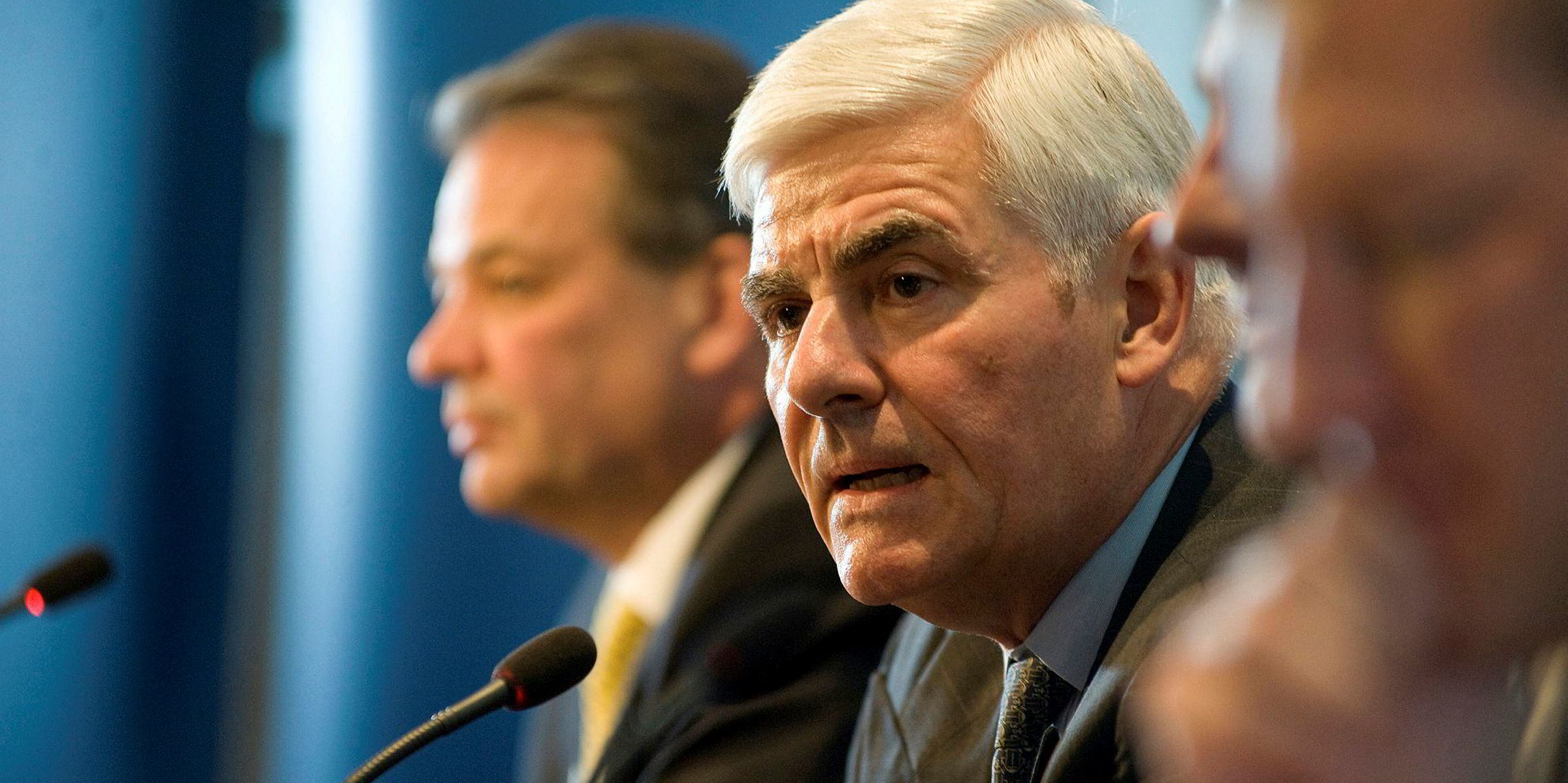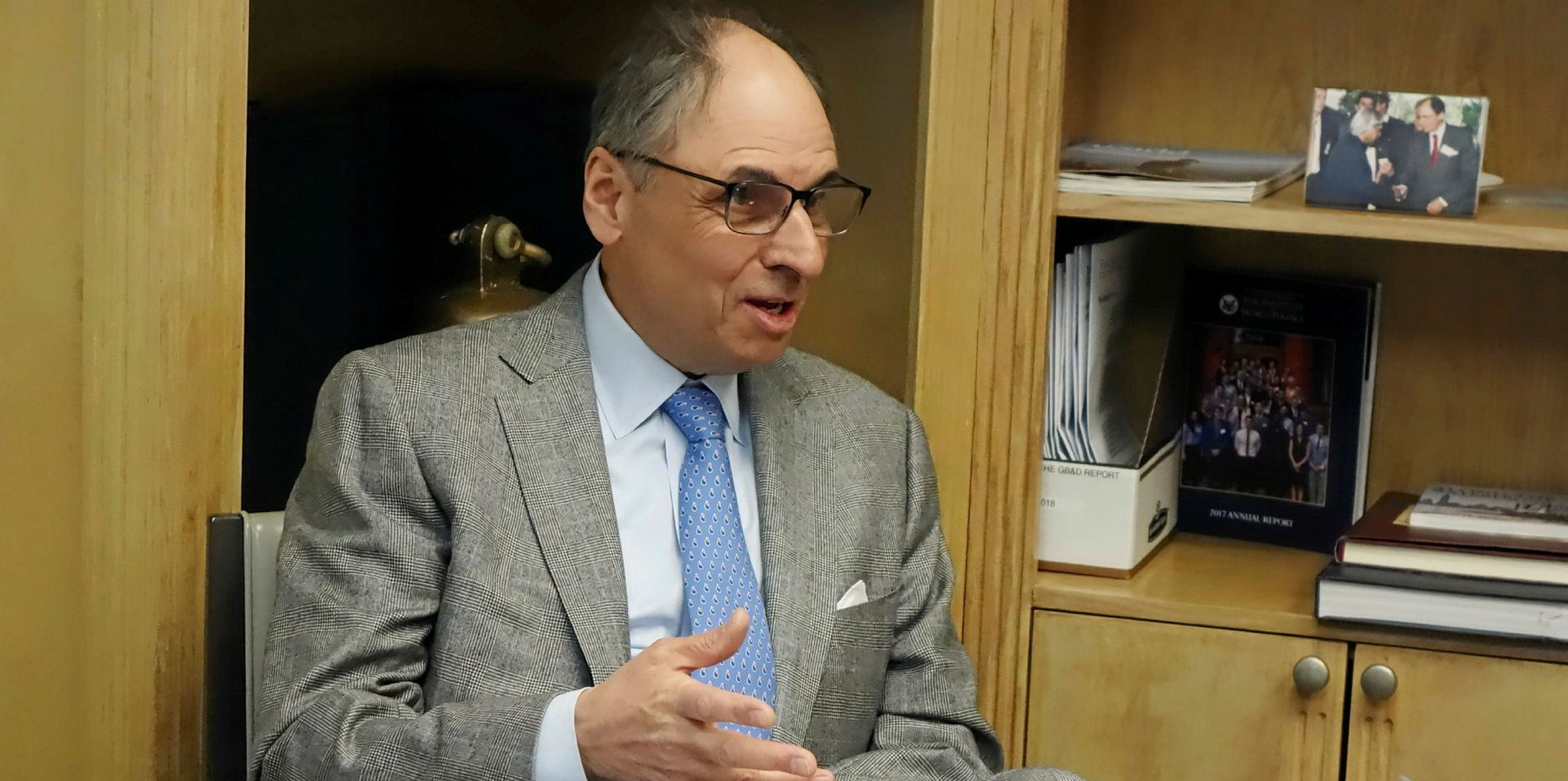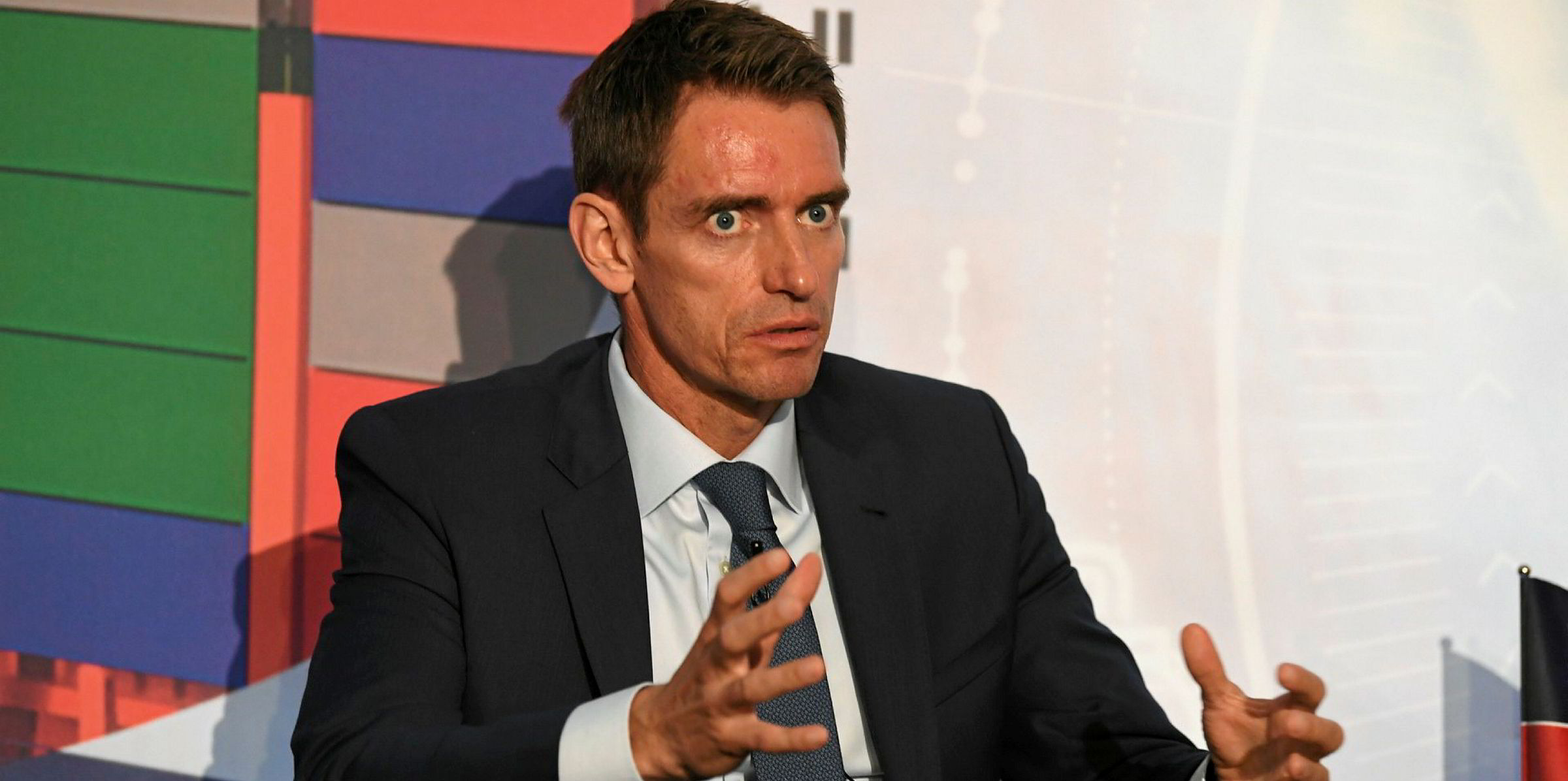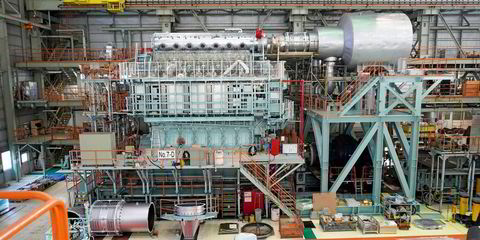Preparation and communication are key to shortening the time shipowners spend on scrubber installations, according to Dorian LPG director John Lycouris. And do not be penny wise and pound foolish.
Longer-than-expected scrubber installation time has emerged as a headache for shipowners in recent months, with some vessels reportedly staying at shipyards for 80 days before their installations are finished.
Lycouris, whose New York-listed company is installing scrubbers on 12 of its 22 VLGCs, told TradeWinds that Dorian spends three to five months preparing for each installation. This allows its vessels to stay in dry dock for 30 to 40 days on average.
“You cannot just go to the shop, buy a scrubber and say, 'Okay guys, install.' It does not happen like that,” Lycouris said.
“[It takes] a lot of work preparation…a lot of steps.”
For each ship to be fitted with the exhaust gas cleaning technology, Connecticut-headquartered Dorian will need to have engineers design how and where to install pumps, piping equipment, electronics and other related items on approval by classification societies.
“Prefabrication before a ship’s arrival is the name of the game. If you do not do prefabrication, you will never be out of the yard in 30 days,” according to Lycouris, who also serves as chief executive of subsidiary Dorian LPG USA.
“We do have the engineering firm and the scrubber people at the shipyard…So they all coordinate.
“We have experienced engineering supervision and support to achieve expedient completion and commissioning of the scrubber installation.”
Long experience
Even before the IMO 2020 rules were confirmed in 2016, Dorian was already fitting scrubbers on two VLGCs – namely the Concorde and Corvette – that were delivered in 2015.
Having planned to complete the installations for another 10 ships by the end of December, the LPG carrier owner in October disclosed that three of them were pushed back to 2020 due a dispute between a Chinese yard and the local authority, without elaborating.
In general, Lycouris defended the yard performances in China despite many delays being reported there.
“Chinese yards are doing a good job, but they have a shortage of materials and labour,” Lycouris said. “They are fully booked with ships” as the IMO 2020 deadline looms.
While revealing the installation charges do not differ much among yards for Dorian, Lycouris stressed his company has been selective in choosing its partners
“We go to major yards. We have tried not to go to very small yards” that could offer very cheap rates, he said.
“Having received multiple quotations, I can tell you that the pricing is more or less the same…[just] 5% to 10%” variation in prices between yards, according to Lycouris.
Separately, TradeWinds understands the installation of a further one or two of Dorian’s vessels could slip into next year due to yard availability and lucrative spot employment opportunities.
Vessels engaged in tramp trades can often miss their yard slots due to uncertain sailing schedules. When that happens, Lycouris suggested the parties involved should communicate with each other in a professional manner so further delays can be avoided.
“[Communication] is very, very important,” Lycouris said. “It just takes better understanding of the complexity of the project by owners and the shipyards.”
“Everybody has to assume their share and extent of responsibility.”
Environmental benefits of scrubbers
While some environmentalist groups have attacked the use of scrubbers as a loophole for IMO 2020, Lycouris stressed that the technology can remove 99% of sulphur oxides, up to 90% of particular matter, and up to 60% of black carbon from exhaust emissions.
“We should not consider new technologies in a negative way. Actually we should be supportive of the development of new technologies to improve environmental impact [on] air quality,” Lycouris said.
Even though some jurisdictions – including Singapore – have banned open-loop scrubbers due to worries over their discharge water, Lycouris noted: “The amount of sulphate that will be going to the sea water from scrubber effluent is negligible compared to the natural sulphate present in sea waters.”
But he also hinted scrubbers would be an interim solution for Dorian. For longer term, the New York-listed owner is looking at LPG propulsion, though firm investments will likely only be made after costs come down and the technology is more proven.
“Our next step is going to be towards adopting LPG as alternate fuel using this technology and generally targeting on improving our environmental footprint,” Lycouris said.
